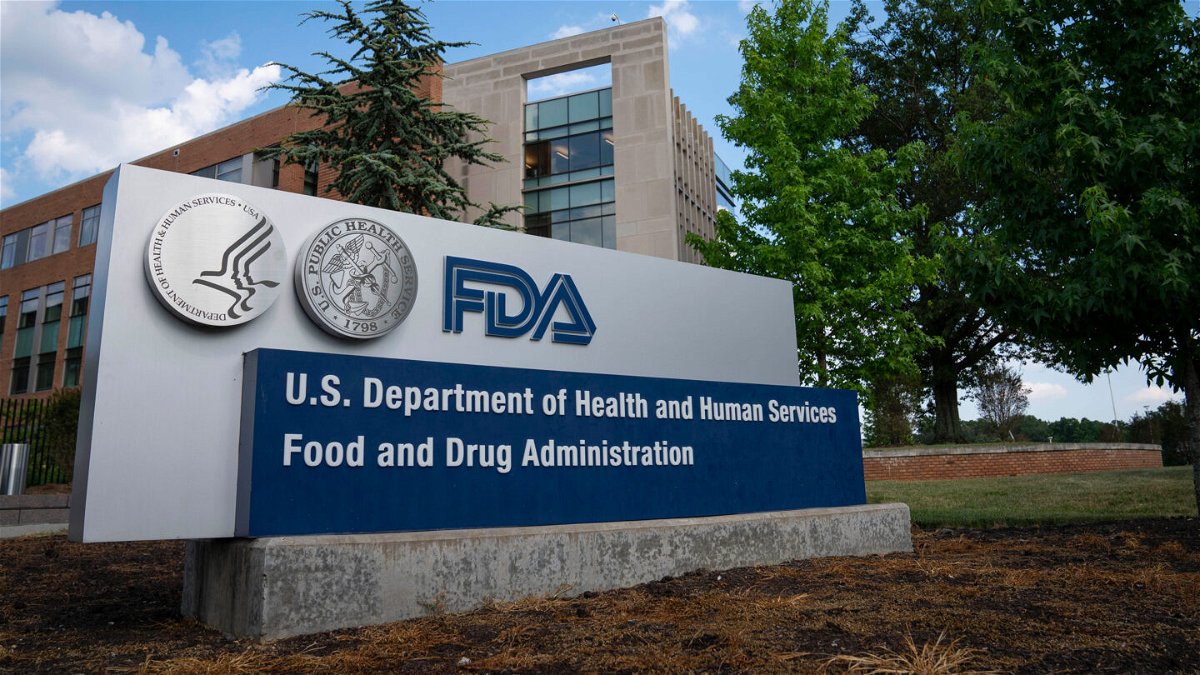FDA considers making Narcan opioid overdose antidote available without prescription

FDA advisers will meet Wednesday to discuss whether a nasal spray version of the opioid overdose antidote Narcan should be made available over-the-counter.
By Jen Christensen, CNN
Advisers to the US Food and Drug Administration will meet Wednesday to discuss whether a nasal spray version of the opioid overdose antidote Narcan should be made available over-the-counter.
The Baltimore-area company Emergent BioSolutions Inc. submitted an application to the FDA late last year to be allowed to sell generic naloxone hydrochloride without a prescription, the first such application for a naloxone spray.
Emergent’s application was granted priority review after the FDA signaled that it would support submissions to improve access to the lifesaving medication.
Wednesday’s meeting will involve the FDA’s Nonprescription Drugs Advisory Committee and the Anesthetic and Analgesic Drug Products Advisory Committee, which will hear evidence on the nasal spray. Approval could come this year.
Research shows that a wider availability of the antidote could save lives as opioid overdose numbers in the US skyrocket.
Naloxone has been around for more than five decades. It was approved by the FDA in 1971 and was initially used by first responders and hospitals to resuscitate people who may otherwise have died from an overdose. It comes in several strengths, dosages and applications.
In briefing documents submitted to the committees for the meeting, Emergent argues that its nasal spray has been specifically designed for use even by people with no medical training. The spray is easier to administer than an injection, the company says.
Briefing documents from the FDA show concern about the label and ease of use. In the meeting, agency representatives will ask the advisers whether they think there is enough evidence to make this change or if the company should submit more data.
Some studies suggest that if naloxone were available over-the-counter, more people would use it. It could reduce some of the stigma associated with the drug, since the purchaser would not have to interact directly with the pharmacist to get it.
Dr. Kirk Evoy, a clinical associate professor of pharmacotherapy at the University of Texas at Austin who has researched the possibilities of over-the-counter naloxone, said some people argue that having naloxone more widely available would limit the opportunity for health care providers to intervene and help a person with their drug addiction.
“I think it’d be great if they do go talk to their health care provider or pharmacist, they can definitely provide valuable counseling,” Evoy said. But some people may not be able to afford it, or they may be too ashamed to talk to a doctor about their drug use.
“I would hate for that to be the reason why somebody doesn’t have access to a drug that could save a life,” Evoy said.
State naloxone laws have increased community access, yet studies show that there are still many barriers.
All 50 states, the District of Columbia and Puerto Rico have laws that allow naloxone to be sold without prescription at a pharmacy, but it still must be bought from a pharmacist.
Many pharmacies don’t carry the product, in part due to issues related to its prescription status, the FDA said in briefing documents.
Making naloxone available without a prescription may also clear up some confusing legalities that could make nonpharmacy programs reluctant to distribute it, Evoy said. People may also not realize that they could just go to a pharmacy and pick it up.
“Allowing it to be over-the-counter in the same manner in every state really clears up some confusion and hopefully clears up some of that red tape,” he said.
Overdose deaths have reached record levels in the US, and opioids are often to blame.
According to the latest data from the US Centers for Disease Control and Prevention for the year ending August 2022, fentanyl and other synthetic opioids were involved in more than two-thirds of all overdose deaths.
Overall, more than 107,000 people in the US died of a drug overdose in the 12-month period, only slightly less than the record number reached in March.
Opioid use in general has been on the decline nationwide since 2012. In 2020, the opioid dispensing rate hit a 15-year low, with 43 prescriptions for every 100 people, according to additional data from the CDC — but that’s still a total of more than 142 million opioid prescriptions in the US.
US Department of Health and Human Services Secretary Xavier Becerra told CNN in January that the federal government supports harm reduction initiatives to prevent drug overdose deaths. The Biden administration has been pushing to make naloxone more accessible.
There is no evidence that naloxone would have any significant adverse reactions. It works if a person has opioids in their system, but if given to someone who doesn’t, there are no known harmful effects.
Almost all states have Good Samaritan laws that provide legal immunity for people who would administer medical aid to someone overdosing on opioids.
Still, experts say that improving access to naloxone is just one step. It still needs to end up in the hands of people who can save someone who is overdosing.
Some think that making it over-the-counter could bring the price down, but if insurance stops paying for it, the cost could become a problem.
Those concerns aside, Evoy thinks an OTC nasal spray is a good idea.
“The more you can administer naloxone, the more likely it is that we’ll have positive results,” he said. “And more likely we’ll be able to save a life with this medication.”
The-CNN-Wire
™ & © 2023 Cable News Network, Inc., a Warner Bros. Discovery Company. All rights reserved.